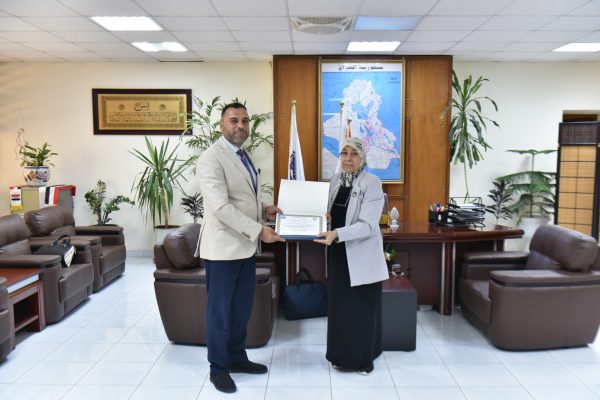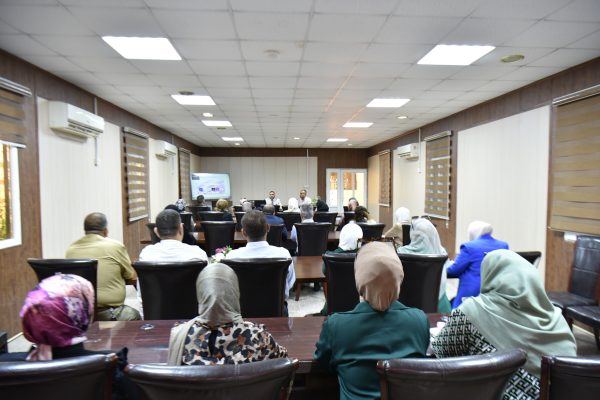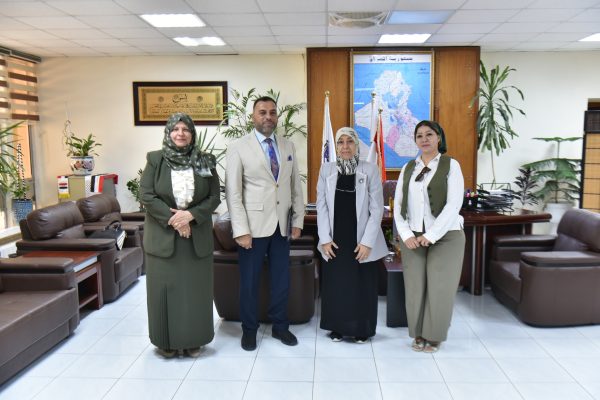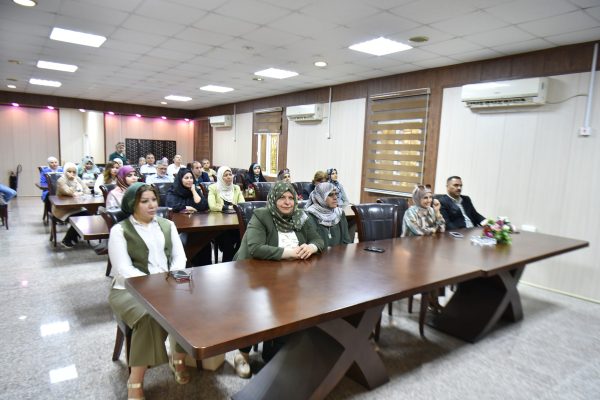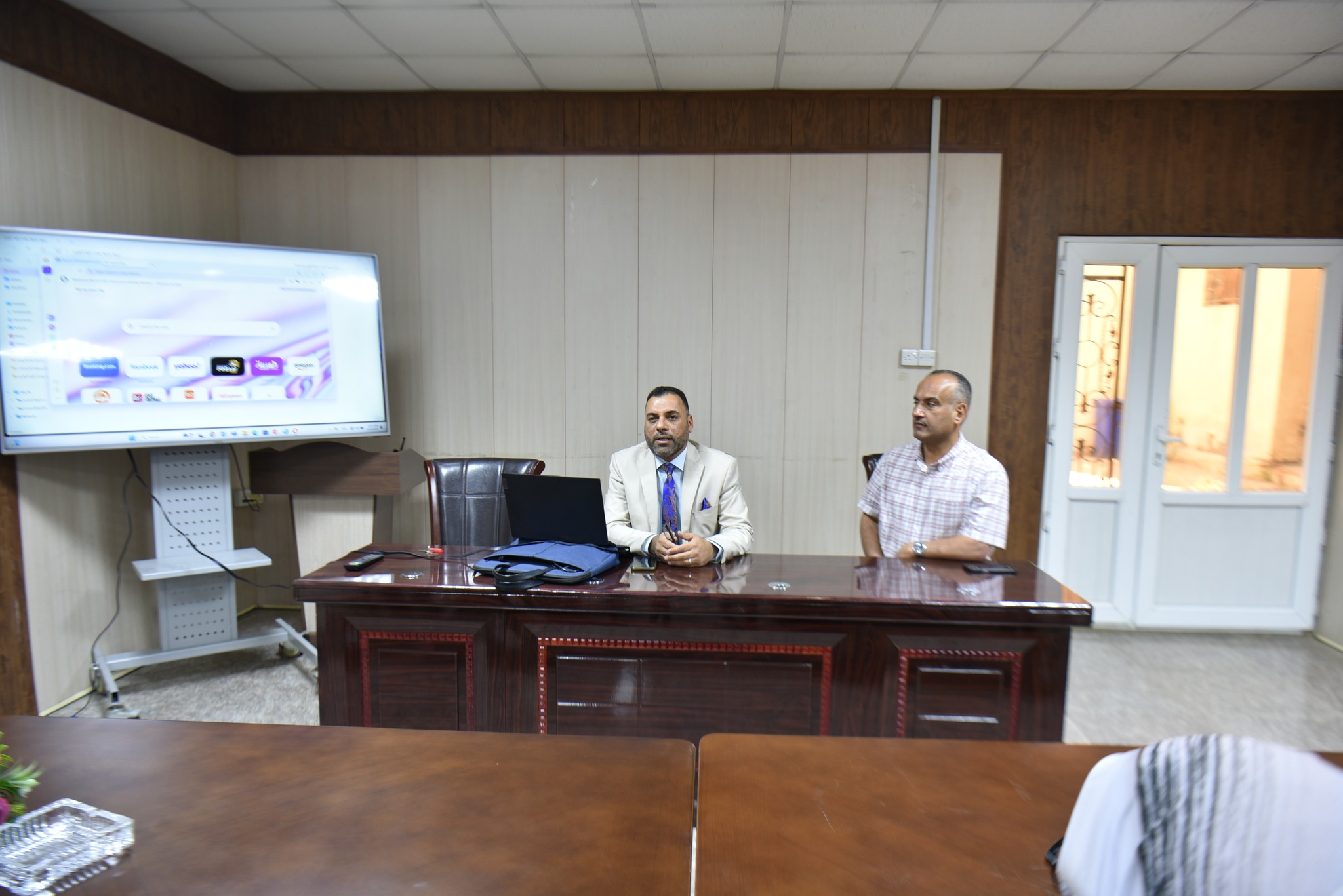Under the patronage of Professor Dr. Sameera Naji Khdim, Dean of the College of Science for Women, and under the supervision of the Department of Biology, the College hosted Dr. Mazen Mahdi Al-‘Uqabi, Representative of the Office of the Prime Minister’s Advisor for Scientific, Academic, and Artificial Intelligence Affairs. Dr. Al-‘Uqabi chaired a symposium titled “Artificial Intelligence (AI): Challenges, Opportunities, and Creating an Enabling Environment”, held on the morning of April 16 in the college’s guest hall. The event was attended by Dr. Mohammed Abdul-Ridha Hamdan, Head of the Department of Biology, along with several department heads, faculty members, and staff of the college.
The symposium commenced with a comprehensive overview of the concept of artificial intelligence, outlining its main types: narrow AI, which is designed for specific tasks; broad AI, capable of handling a variety of tasks; and general AI, which simulates full human cognitive abilities such as reasoning, learning, and decision-making. The session also highlighted the extensive applications of AI in various sectors, most notably education, healthcare, industry, public administration, and digital services. The discussions emphasized the importance of establishing a supportive scientific and technological environment that fosters research and innovation by developing technological infrastructure and providing qualified human resources.
Additionally, the symposium addressed the growing role of AI in promoting innovation and development, stressing the importance of integrating ethical and legal dimensions to ensure responsible and regulated use of intelligent technologies. Key challenges were discussed, including privacy and data protection concerns, risks associated with algorithmic bias, and the implications of job displacement due to automation.
The symposium concluded by underscoring the need for coordinated efforts among academic and research institutions, as well as legislative and executive bodies, to establish clear regulatory frameworks. These frameworks are essential for guiding the use of AI in a manner that contributes to sustainable development, maximizes societal benefit, and mitigates potential negative consequences arising from misuse or lack of effective oversight.
